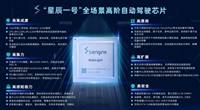1.75 MSPS, 4 mW
10-Bit/12-Bit Parallel ADCs
a
AD7470/AD7472
FUNCTIONAL BLOCK DIAGRAM
FEATURES
Specified for VDD of 2.7 V to 5.25 V
1.75 MSPS for AD7470 (10-Bit)
1.5 MSPS for AD7472 (12-Bit)
V
AV
DV
DD
REF IN
DRIVE
DD
Low Power
DB9 (DB11)
DB0
10-/12-BIT
AD7470: 3.34 mW Typ at 1.5 MSPS with 3 V Supplies
7.97 mW Typ at 1.75 MSPS with 5 V Supplies
AD7472: 3.54 mW Typ at 1.2 MSPS with 3 V Supplies
8.7 mW Typ at 1.5 MSPS with 5 V Supplies
Wide Input Bandwidth
70 dB Typ SNR at 500 kHz Input Frequency
Flexible Power/Throughput Rate Management
No Pipeline Delays
SUCCESSIVE
OUTPUT
DRIVERS
V
T/H
IN
APPROXIMATION
ADC
CLK IN
CONTROL
LOGIC
CONVST
CS
RD
High Speed Parallel Interface
Sleep Mode: 50 nA Typ
24-Lead SOIC and TSSOP Packages
BUSY
AD7470/AD7472
AGND
DGND
GENERAL DESCRIPTION
AD7470 IS A 10-BIT PART WITH DB0 TO DB9 AS OUTPUTS.
AD7472 IS A 12-BIT PART WITH DB0 TO DB11 AS OUTPUTS.
The AD7470/AD7472 are 10-bit/12-bit high speed, low power,
successive-approximation ADCs. The parts operate from a
single 2.7 V to 5.25 V power supply and feature throughput rates
up to 1.5 MSPS for the 12-bit AD7472 and up to 1.75 MSPS for
the 10-bit AD7470. The parts contain a low noise, wide band-
width track/hold amplifier that can handle input frequencies in
excess of 1 MHz.
It is also possible to operate the parts in an auto sleep mode,
where the part wakes up to do a conversion and automatically
enters sleep mode at the end of conversion. Using this method
allows very low power dissipation numbers at lower throughput
rates. In this mode, the AD7472 can be operated with 3 V sup-
plies at 100 kSPS, and consume an average current of just 124 µA.
At 5 V supplies and 100 kSPS, the average current consumption
is 171 µA.
The conversion process and data acquisition are controlled
using standard control inputs allowing easy interfacing to
microprocessors or DSPs. The input signal is sampled on the
falling edge of CONVST and conversion is also initiated at
this point. The BUSY goes high at the start of conversion and
goes low 531.66 ns after falling edge of CONVST (AD7472 with
a clock frequency of 26 MHz) to indicate that the conversion is
complete. There are no pipelined delays associated with the part.
The conversion result is accessed via standard CS and RD sig-
nals over a high speed parallel interface.
The analog input range for the part is 0 to REF IN. The +2.5 V
reference is applied externally to the REF IN pin. The conver-
sion rate is determined by the externally-applied clock.
PRODUCT HIGHLIGHTS
1. High Throughput with Low Power Consumption. The
AD7470 offers 1.75 MSPS throughput and the AD7472
offers 1.5 MSPS throughput rates with 4 mW power
consumption.
The AD7470/AD7472 uses advanced design techniques to
achieve very low power dissipation at high throughput rates. With
3 V supplies and 1.5 MSPS throughput rate, the AD7470 typi-
cally consumes, on average, just 1.1 mA. With 5 V supplies and
1.75 MSPS, the average current consumption is typically
1.6 mA. The part also offers flexible power/throughput rate
management. Operating the AD7470 with 3 V supplies and
500 kSPS throughput reduces the current consumption to 713 µA.
At 5 V supplies and 500 kSPS, the part consumes 944 µA.
2. Flexible Power/Throughput Rate Management. The conver-
sion rate is determined by an externally-applied clock allow-
ing the power to be reduced as the conversion rate is reduced.
The part also features an auto sleep mode to maximize power
efficiency at lower throughput rates.
3. No Pipeline Delay. The part features a standard successive-
approximation ADC with accurate control of the sampling
instant via a CONVST input and once off conversion
control.
REV. A
Information furnished by Analog Devices is believed to be accurate and
reliable. However, no responsibility is assumed by Analog Devices for its
use, nor for any infringements of patents or other rights of third parties
which may result from its use. No license is granted by implication or
otherwise under any patent or patent rights of Analog Devices.
One Technology Way, P.O. Box 9106, Norwood, MA 02062-9106, U.S.A.
Tel: 781/329-4700
Fax: 781/326-8703
World Wide Web Site: http://www.analog.com
© Analog Devices, Inc., 2000














 英伟达新AI芯片Rubin或提前半年亮相
英伟达新AI芯片Rubin或提前半年亮相

 苹果iPhone 17将全系采用三星/LG显示LTPO OLED面板
苹果iPhone 17将全系采用三星/LG显示LTPO OLED面板

 三星深化印度制造布局,供应链本地化进程加速
三星深化印度制造布局,供应链本地化进程加速

 芯擎科技“星辰一号”自动驾驶芯片点亮成功,2025年量产在即
芯擎科技“星辰一号”自动驾驶芯片点亮成功,2025年量产在即
